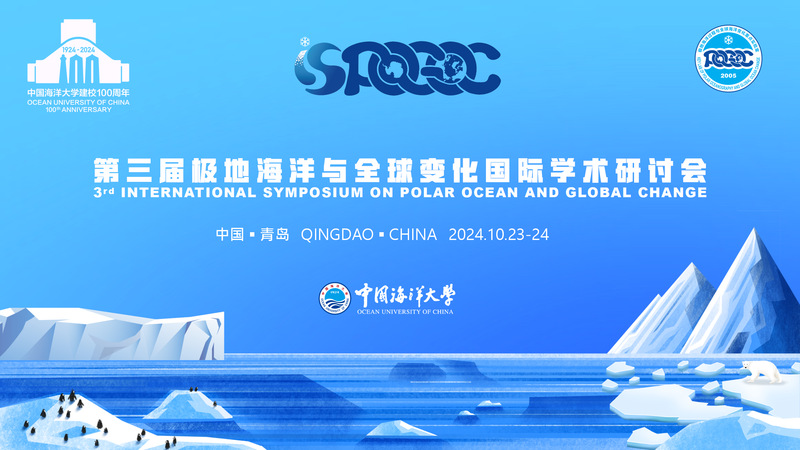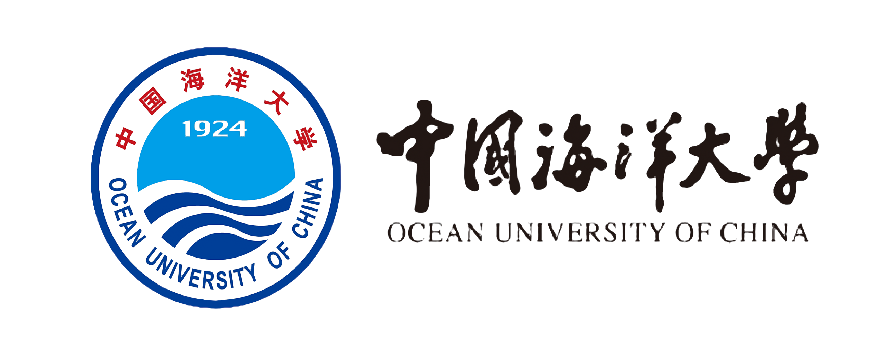
4th International Symposium on Polar Ocean and Global Change
变化中的北冰洋:机制、影响和预测
A Changing Arctic Ocean: Drivers, Impacts and Projections
As the sea ice decline, air temperature increase and ocean warming in the Arctic, a series of changes in physical, ecological and biogeochemical processes have taken place in the Arctic and sub-Arctic regions. However, the understanding of forcing mechanism, impacts and future trends of these changes still remains a major challenge. The basis of this challenge resides in the nonlinear dynamics of the coupled system that involves the response and feedback of atmosphere, ocean, sea ice and biosphere. It is also widely recognized the representative observations and accurate numerical simulations are critical to understand the Arctic system. Therefore, goal of the symposium 2025 is to gather the expertise over the Arctic researches and deeply discuss the drivers, impacts and trends of the changes in the Arctic system in a rapid warming world.

3rd International Symposium on Polar Ocean and Global Change
主题:极地海洋对全球变暖的响应与反馈
Theme: Response and Feedback of the Polar Oceans to Global Warming
The year 2024 marks the 100th anniversary of Ocean University of China and the 40th anniversary of China’s polar research expedition. Over the past 100 years, global warming has become increasingly evident. Over the past 40 years, satellite observations have detected a continuous and rapid decline in the extent of Arctic sea ice and a tipping point in the long-term variability of Antarctic sea ice. As research on the polar oceans has gradually progressed, we come to 2024, which is of special significance for both marine and polar sciences in China, Ocean University of China is organizing the 3rd International Symposium on Polar Oceans and Global Ocean Change (iSPOGOC2024). We welcome scholars from all over the world to gather in Qingdao from October 23 to 24 to share their research advances on the response and feedback of the polar oceans to global warming, and to contribute their wisdom to building a better home planet.

Important Dates:
2024-6-6 iSPOGOC2024 Circular (1st round)
2024-7-12 iSPOGOC2024 Circular (2nd round) Call for Abstract
2024-8-30 Deadline of abstract
2024-9-10 iSPOGOC2024 Circular (3rd round)
2024-9-30 Deadline of early bird registration and hotel reservation
2024-10-22 Registration
2024-10-23-24 iSPOGOC2024
~~~~~~~~~~~~~~~~~~~~~~~~~~~~~~~~~~~~~~~~~~~~~~~~~~~~~~~~~~~~~~~~~~~~~~~~~~~~~~~~~~~~~~~~~~~~~~~~~~~~~~~~~~~~~
2nd International Symposium on Polar Ocean and Global Change
主题:气候变化中的南大洋物理和生态过程
Theme: Physical and Ecological Processes in the Southern Ocean under a Changing Climate
As a primary exchange channel between major ocean basins and a crucial link between the deep and upper limbs of the global overturning circulation, the Southern Ocean plays a central role in the Earth System. Southern Ocean processes influence climate, ecosystem and biogeochemical cycles on global scales. Meanwhile, these processes and their impacts might have been modified by the changing climate. Therefore, it is important to understand the responses and feedbacks of the Southern Ocean to the global climate change. This symposium provides a forum for scientists with research interests of physical and ecological processes in the Southern Ocean to present new findings in areas of shelf-basin exchanges, ice-ocean interactions, heat uptake and transport, biogeochemical cycles, ecosystem and living resources in the Southern Ocean, discuss their links with global climate change and explore associated governance responses.
~~~~~~~~~~~~~~~~~~~~~~~~~~~~~~~~~~~~~~~~~~~~~~~~~~~~~~~~~~~~~~~~~~~~~~~~~~~~~~~~~~~~~~~~~~~~~~~~~~~~~~~~~~~~~
1st International Symposium on Polar Ocean and Global Change
主题:北极快速变化对海洋物质与能量输运的影响
Theme: Influence of Arctic rapid change on oceanic transport of matter and energy
In response to the ongoing global warming, the Arctic and sub-Arctic regions are experiencing rapid changes, with continuing sea ice decline and temperature increase. Arctic changes lead to significant variations in ocean stratification, mixing and circulation, and increase the flux of terrestrial matters. Consequently, a series of changes manifesting amid complex interactions among atmosphere, ice and snow, ocean, land and organisms have had a profound impact on the transport of matter and energy in the Arctic. Furthermore, the Arctic changes have feedback effects on the global climate change. Thus, an understanding of the impacts, processes and mechanisms of oceanic transport of matter and energy in the Arctic is needed to reveal how the rapid Arctic changes take place. The focus of this symposium is to gather researchers with the expertise in Arctic sea ice variabilities, oceanic circulation, geochemistry processes and ecosystem effects to discuss how best to integrate our current knowledge on the influence of the Arctic rapid changes, from high latitudes to temperate regions, and how these processes have been altered under the global warming.

